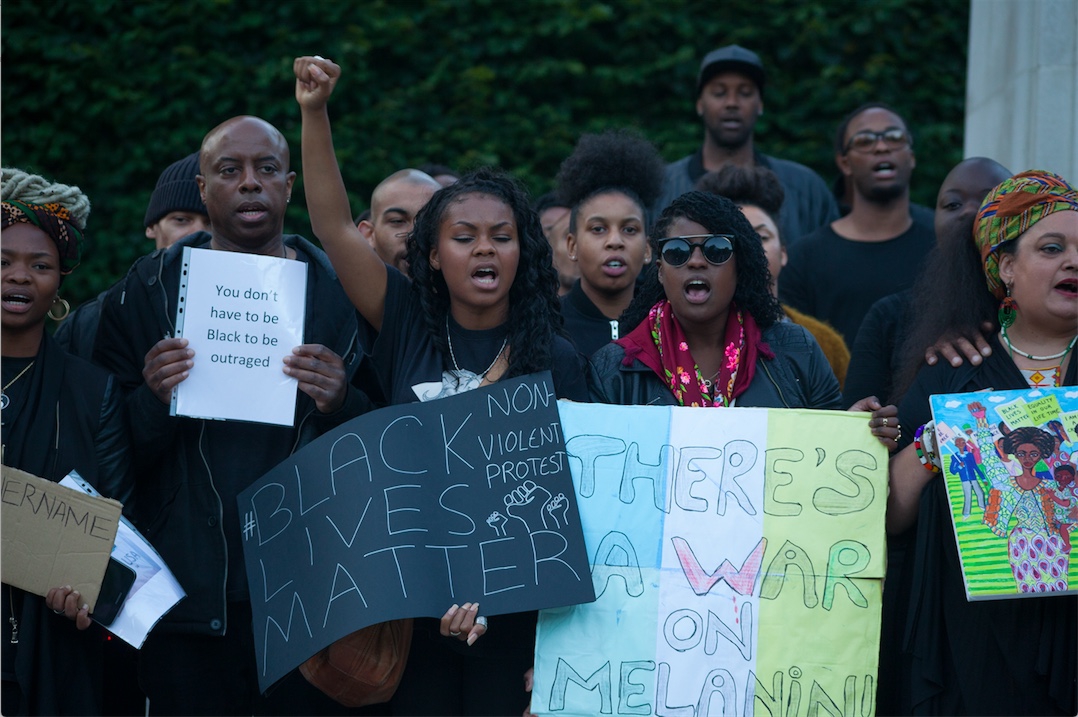
 Why Being Non-Racist Isn't Good Enough
Why Being Non-Racist Isn't Good Enough
RnB/Hip Hop | Monday 4th April 2016 | Courtney
In January, Marlon James posted a meaningful video explaining the difference between being non-racist and being anti-racist in our society.
We know an organisation BlackOutLdn that feels this is an excellent starting point for explaining how vital it is to not stay idle when it comes to fighting racism – if we all just ignore it, it will not go away. We need to be anti-racist.
As he explains, most people would consider themselves non-racist because they are morally against prejudice and inequality. Most of us do not use racist language, we don’t ‘burn crosses’, and we don’t believe in racial segregation, for example. Being anti-racist, on the other hand, is the reason why all of the above are outlawed. The strides our society has made in racial equality is down to people being active in fighting injustice, instead of sitting back and expecting things to correct themselves. The protests that BlackOutLdn have organised and taken part in make just one of the ways that we are dedicated to combatting racism, just like all of the millions of anti-racism protestors across the world and throughout history.
Non-racism can be done blindfolded with your hands behind your back; anti-racism is what takes strength and action. Put it this way: if you see someone being mugged or assaulted in the street, but you don’t take part, then great! You are morally in the right – it would be wrong to commit a crime against somebody. But if you then walk on without offering the victim any assistance or calling emergency services, then you are denying them justice and doing the perpetrators a favour. Your complicity may as well mean you are on their side.
It is exactly the same with racism. Many people claim that since they are not knowingly racist then there is nothing more they can do – or rather, there is nothing they need to do – to eliminate racism. Complicity and silence hold nobody accountable, and when people of colour are being persecuted and killed, those who say and do nothing about it are part of the problem.
Late last year, a black woman used her Twitter to account her shocking experience of racist and physical abuse on a packed cross-country train right here in the UK. She was targeted by a drunk white man using vile racist language in front of many witnesses, but nobody stepped in to defend her. According to her tweets, some even told her to calm down as she was ‘upsetting people’. In this situation, the fact that the witnesses themselves were not being racist did absolutely nothing to protect the woman and even made the man think he could use that language freely – not to mention their stance quickly turned to victim-blaming when the woman called them out for staying silent.
This is why we need to be anti-racist. We need to be actively fighting against racism because that is the only way it will truly be overcome. Ignoring it in the hope it will go away is just not how it works, because racism is much more complex than that – people have to undo what people have done.
You are part of the problem if you see injustice and walk on by. Victims of racism and inequality are relying on you to speak out for them when they cannot, in the same way that victims of any other crime would. You are part of the problem if you make excuses for the perpetrator or undermine the victim’s experience. And being anti-racist takes many shapes: don’t excuse yourself from the duty because it’s not in your power to organise a large-scale protest – calling someone out for an offensive joke means you are not taking racism lying down.
Being non-racist does nothing, says nothing, and means nothing. We need to be anti-racist.
